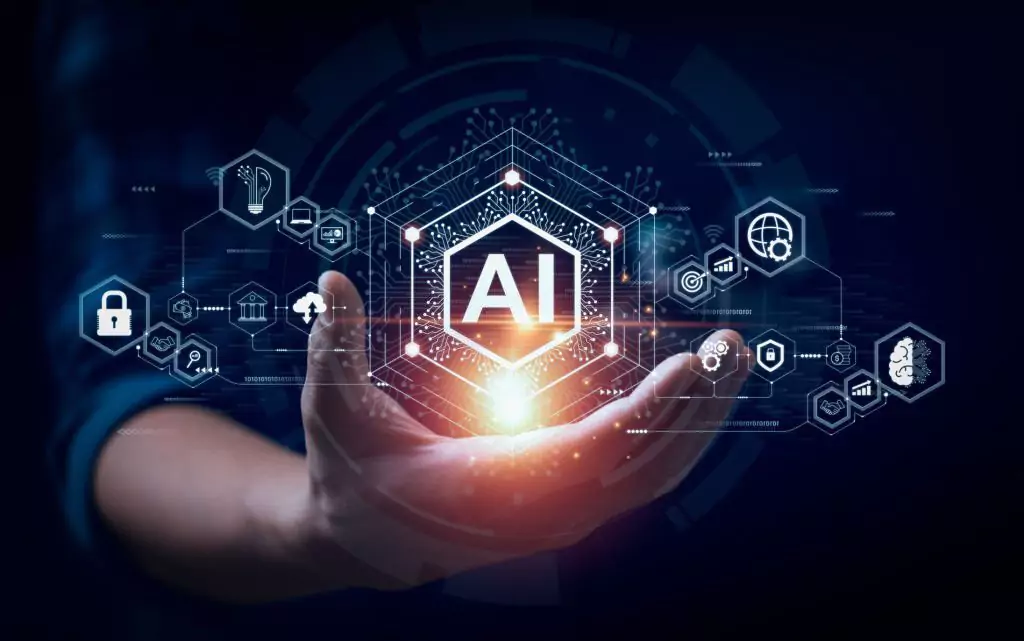Introduction:
Artificial Intelligence (AI) has emerged as a transformative technology that is reshaping various industries and sectors. With its ability to analyze vast amounts of data, learn from patterns, and make autonomous decisions, AI is revolutionizing the way we work. While there are concerns about job displacement and the ethical implications of AI, it is important to understand the potential benefits and opportunities that AI brings to the future of work.

Automation and Job Displacement:
One of the primary concerns surrounding AI is the potential for job displacement. As AI technology advances, there is a fear that machines will replace human workers, leading to widespread unemployment. However, studies have shown that while certain jobs may be automated, new jobs will also be created as a result of AI implementation.
Automation has already had a significant impact on industries such as manufacturing and transportation. Robots and autonomous vehicles have replaced human workers in many repetitive and dangerous tasks. However, this has also led to the creation of new jobs in areas such as robot maintenance and programming. Additionally, AI has the potential to augment human capabilities, allowing workers to focus on more complex and creative tasks.
Furthermore, AI can also lead to the creation of entirely new industries and job roles. For example, the development of AI-powered virtual assistants has created a demand for professionals who can design, develop, and manage these systems. Similarly, the field of data science has seen tremendous growth as organizations seek to leverage AI for data analysis and decision-making. Overall, while there may be short-term disruptions, the long-term impact of AI on employment is likely to be positive.
Augmentation and Collaboration:
Rather than replacing human workers, AI has the potential to augment their capabilities and enable more efficient collaboration. By automating repetitive tasks and providing real-time insights, AI can free up human workers to focus on higher-value activities.
For example, in the healthcare industry, AI-powered diagnostic tools can analyze medical images and provide preliminary diagnoses, allowing doctors to spend more time on patient care and complex cases. In the legal field, AI can assist lawyers in conducting legal research and analyzing vast amounts of case law, enabling them to provide more accurate and comprehensive advice to clients.
Moreover, AI can facilitate collaboration between humans and machines. Collaborative robots, also known as cobots, are designed to work alongside humans in a shared workspace. These robots can perform tasks that require precision and strength, while humans can focus on tasks that require creativity and problem-solving skills. This collaborative approach not only enhances productivity but also promotes a more inclusive and diverse workforce.
Ethical Considerations:
As AI becomes more integrated into the workplace, there are ethical considerations that need to be addressed. One of the main concerns is the potential for bias in AI algorithms. AI systems are trained on large datasets, which may contain biases that can perpetuate discrimination and inequality. For example, if an AI system is trained on historical hiring data that is biased against certain demographics, it may inadvertently perpetuate those biases when making hiring decisions.
To mitigate this risk, it is crucial to ensure that AI algorithms are developed and trained with diverse datasets that accurately represent the population. Additionally, organizations should implement transparency and accountability measures to monitor and address any biases that may arise.
Another ethical consideration is the impact of AI on privacy and data security. AI systems rely on vast amounts of data to learn and make decisions. This raises concerns about the collection, storage, and use of personal data. Organizations must prioritize data protection and implement robust security measures to safeguard sensitive information.
Conclusion:
While the impact of AI on the future of work is still unfolding, it is clear that AI has the potential to transform industries and create new opportunities. Rather than replacing human workers, AI can augment their capabilities and enable more efficient collaboration. However, it is important to address the ethical considerations associated with AI, such as bias and privacy concerns. By harnessing the power of AI responsibly, we can shape a future where humans and machines work together to achieve greater productivity and innovation.

